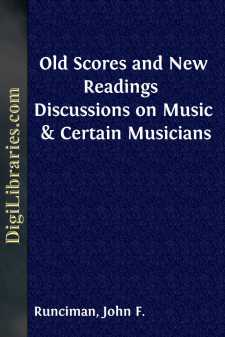Categories
- Antiques & Collectibles 13
- Architecture 36
- Art 48
- Bibles 22
- Biography & Autobiography 813
- Body, Mind & Spirit 142
- Business & Economics 28
- Children's Books 17
- Children's Fiction 14
- Computers 4
- Cooking 94
- Crafts & Hobbies 4
- Drama 346
- Education 46
- Family & Relationships 57
- Fiction 11829
- Games 19
- Gardening 17
- Health & Fitness 34
- History 1377
- House & Home 1
- Humor 147
- Juvenile Fiction 1873
- Juvenile Nonfiction 202
- Language Arts & Disciplines 88
- Law 16
- Literary Collections 686
- Literary Criticism 179
- Mathematics 13
- Medical 41
- Music 40
- Nature 179
- Non-Classifiable 1768
- Performing Arts 7
- Periodicals 1453
- Philosophy 64
- Photography 2
- Poetry 896
- Political Science 203
- Psychology 42
- Reference 154
- Religion 513
- Science 126
- Self-Help 84
- Social Science 81
- Sports & Recreation 34
- Study Aids 3
- Technology & Engineering 59
- Transportation 23
- Travel 463
- True Crime 29
John F. Runciman
John F. Runciman was a British writer and music critic known for his insightful and often sharp commentary on music and its performers in the late 19th and early 20th centuries. He authored several works, including "Richard Wagner: Composer of Operas" (1898), where he explored the life and influence of the German composer. Runciman's writings, characterized by his distinctive style and passionate opinions, contributed significantly to the field of music criticism during his time.
Author's Books:
Sort by:
by:
John F. Runciman
CHAPTER I JOSEPH HAYDN It is, as a rule, inexpedient to begin a book with the peroration. Children are spared the physic of the moral till they have sucked in the sweetness of the tale. Adults may draw from a book what of good there is in it, and close it before reaching the chapter usually devoted to fine writing. But the case of Haydn is extraordinary. One can only sustain interest in a biography of...
more...
by:
John F. Runciman
Many years ago, in the essay which is set second in this collection, I wrote (speaking of the early English composers) that "at length the first great wave of music culminated in the works of Tallis and Byrde ... Byrde is infinitely greater than Tallis, and seems worthy indeed to stand beside Palestrina." Generally one modifies one's opinions as one grows older; very often it is necessary...
more...
by:
John F. Runciman
LIFE OF WAGNER HIS YOUTH 1813-1834. The old world is very remote from us now, but it is worth while making a small attempt to realize how it stood to Wagner. When he was born, in 1813, Bach had been dead only a little over sixty years; Mozart had been dead about twenty years, and Haydn about ten; Beethoven was in the full splendour of his tremendous powers; Weber and Schubert had still their finest...
more...
by:
John F. Runciman
CHAPTER I We once had a glorious school of composers. It departed, with no sunset splendour on it, nor even the comfortable ripe tints of autumn. The sun of the young morning shone on its close; the dews of dawn gleam for ever on the last music; the freshness and purity of the air of early morning linger about it. It closed with Purcell, and it is no hyperbole to say the note that distinguishes...
more...
by:
John F. Runciman
INTRODUCTION It is now one hundred years since Richard Wagner was born, thirty since he died. In every land he has his monument in one shape or another; his music-dramas can be heard all the world over; all the ancient controversies as to their merits or demerits have died down. The Bayreuth theatre, the outward and visible sign of his inner greatness, has risen to the point of its most splendid glory...
more...






